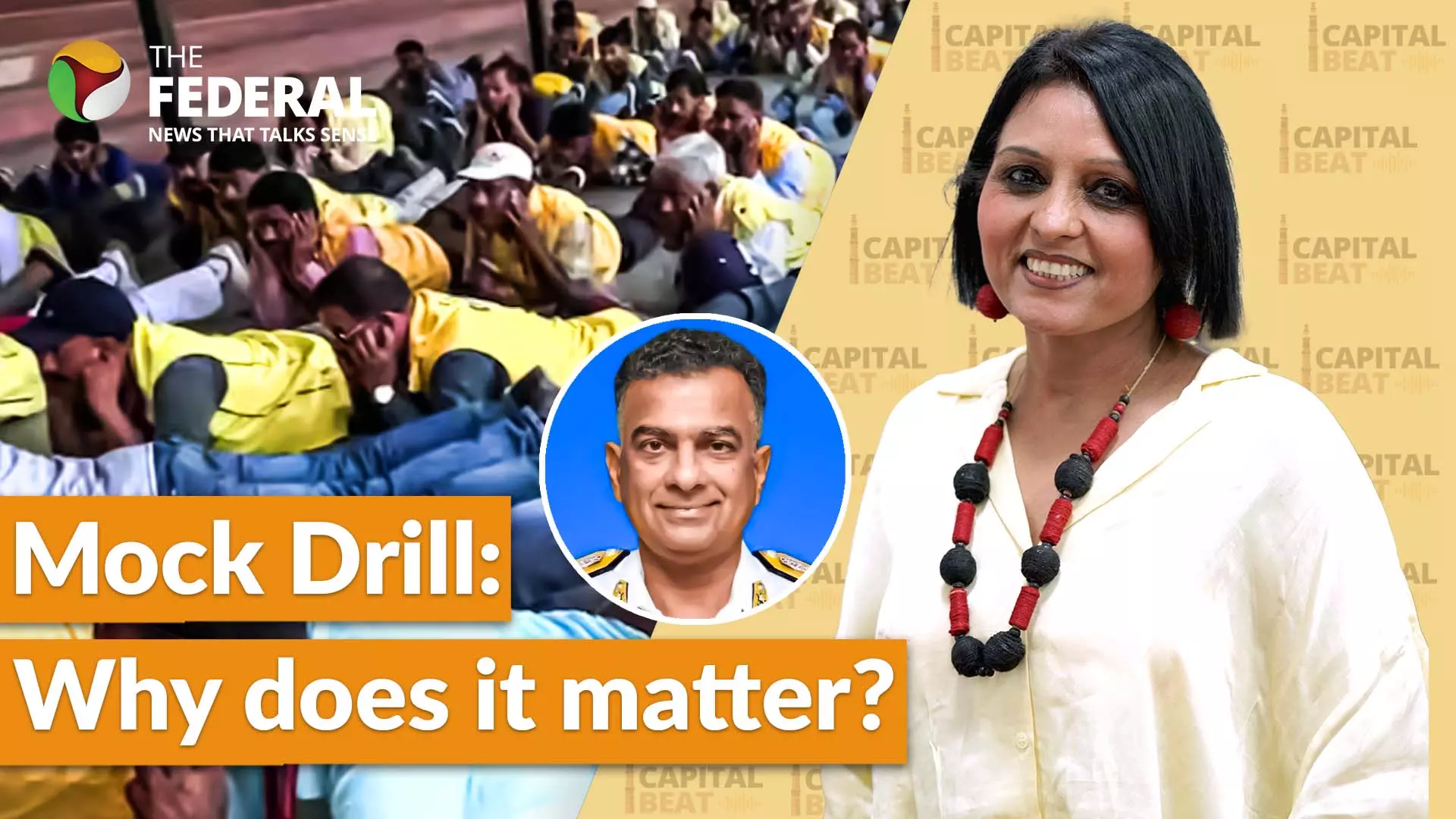
Mock Drill on May 07
May 7 mock drill: Will daily services and lives be affected?
Why India’s nationwide civil defence drill matters in today’s volatile times

As India prepares for a massive nationwide civil defence mock drill on May 7, questions are swirling over its relevance and effectiveness in today’s tech-driven world. With tensions running high after the Pahalgam terror attack that killed 26, the government is rolling out an unprecedented exercise across 244 districts, aiming to strengthen civilian preparedness. In this episode of Capital Beat, Neelu Vyas speaks to Retired Rear Admiral Suresh Grewal to unpack the purpose, challenges, and future of these drills.
Neelu Vyas: Admiral Grewal, how relevant are these kinds of mock drills today, especially when we rarely hear about them?
Rear Admiral Suresh Grewal: Mock drills are always relevant. They prepare the civilian population for how to handle enemy attacks on public facilities like water supplies, power grids, or defence industrial units. The purpose is to maintain high civilian morale, restore services quickly, and ensure that the war effort continues. These drills cover three phases: before, during, and after an attack, familiarizing both civilians and civil defence volunteers with their roles.
Neelu Vyas: Who are these civil defence volunteers, and how are they recruited?
Grewal: They’re usually from the civilian population—not from the armed forces, police, or fire services. They can be teachers, lawyers, bankers, anyone interested in volunteering. Typically, district headquarters maintain a list, and volunteers undergo about a week of training. They get an ID card and are called up when needed, receiving travel and duty allowances while on service.
Neelu Vyas: Specifically, how will the air raid warnings and blackouts work, and how should civilians respond?
Grewal: The district administration, coordinated by the additional district collector, oversees this. Civilians will hear air raid sirens and should adopt safety positions—lying on the ground, crouching, covering their necks to minimize injury from flying debris. Schools, offices, and public spaces will have trained personnel to guide people. After the drills, teams will practice restoring essential services like power, water, and transport.
Neelu Vyas: Won’t this kind of simulation cause panic, especially among students and homemakers?
Grewal: That’s why mock drills are vital—to prevent panic. Schools should have trained teachers to brief students in advance. These drills aim to familiarize people with procedures so they know how to protect themselves and help restore calm after an incident.
Neelu Vyas: Do you think today’s drills are outdated, especially with modern surveillance tools like satellite and thermal imaging?
Grewal: You’re right, the technological landscape has changed dramatically. Fifty years ago, blackouts hid cities from aerial view; now, GPS and precision weapons make that less effective. But the primary goal remains: to keep public morale high and minimize panic. While the technology may be old, the psychological preparedness it builds is still crucial.
Neelu Vyas: Should the government be updating these drills to reflect current warfare technologies?
Grewal: Ideally, yes. The Civil Defence Act dates back to 1968, with its last major update in 2009. Civil defence leadership should constantly review and revise drills to account for modern threats, including weapons of mass destruction and cyber-attacks.
Neelu Vyas: Is a one-day drill really enough, or should these happen more regularly?
Grewal: Absolutely—they should happen regularly. Ideally, districts and states should hold routine drills, not just in response to emergencies or tensions. Repetition builds familiarity, just like fire drills or evacuation exercises in schools and workplaces.
Neelu Vyas: How does social media factor into this, both as a help and a challenge?
Grewal: Social media can both inform and panic people. While some will appreciate learning about civil defence, others may spread misinformation or criticize the drills. In a real emergency, authorities might need to suspend internet access to control the information flow and prevent panic.
Neelu Vyas: So, do you believe this May 7 drill is just a start?
Grewal: It’s possible. While officially announced as a one-day exercise, districts may follow up with unannounced or localized drills. This could gradually build into a routine, especially given the heightened awareness around national security.
The content above has been generated using a fine-tuned AI model. To ensure accuracy, quality, and editorial integrity, we employ a Human-In-The-Loop (HITL) process. While AI assists in creating the initial draft, our experienced editorial team carefully reviews, edits, and refines the content before publication. At The Federal, we combine the efficiency of AI with the expertise of human editors to deliver reliable and insightful journalism.

